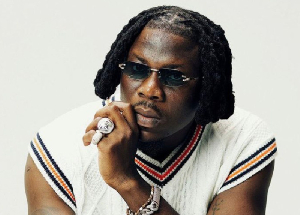I constrain my write up to three eras under the heading I have chosen: the Rawlings’ era of “House Cleaning”, Kufuor’s era of “Zero Tolerance for Corruption”, and the Mills/Mahama era of “Forgiveness.”
The Rawlings era of Housing Cleaning, in principle means there shouldn’t have been any traces of corrupt activities in our society as a nation after the cleaning was over. However, after twenty-one years of Rawlings’ rule the only accusation used against him by the then opposition NPP was corruption in officialdom. In the 80s under the military rule, it was risky to make such accusations against Rawlings or any of his ministers, though. It was after the country was returned to civilian rule in 1992 that press freedom made room for civil society to begin to question Rawlings’ house cleaning record. Consequently, the press and civil society intensified the inspection of homes of Rawlings’ ministers to see whether they were good disciples of their master. Of course, you would expect some prices to be paid as some journalists were harassed and beaten by the commandos, a loyalist military unit to the Rawlings regime. Some media house premises were ‘shit-bombed’, still under civilian rule, on Rawlings watch. Things turned ugly for Rawlings as the media mounted more pressure on his administration to live up to the tenets of integrity, probity and accountability. Luck was not on Rawlings’ side when a mini forex bureau in the bedroom of the then Attorney General, Dr. Obed Asamoah, who doubled as the NDC National Treasurer was uncovered by one of his guards and hard currencies were looted. This occurrence gave credence to all allegations of corruption in Rawlings’ government, especially when Dr. Asamoah could not give any convincing reason for having his mini forex bureau in his bedroom rather than having it where the public could do business with him. A hypocritical Rawlings responded to this brouhaha by saying he trusted his ministers. This was close to elections 2000, and Kufour and the NPP used it to whip up public anger against the NDC government. Candidate Kufuor then offered Ghanaians a positive change through zero tolerance for corruption if voted into power.
Pundits did not believe that Kufour was honest enough to stand by his zero tolerance for corruption mantra, but embraced change as a matter of necessity to break free from Rawlings’ stifling rule, at least. By the first quarter of 2001, a newly-sworn in president Kufour had established a fast track court in Accra and top ministers under Rawlings lined up for trial. Corruption would now be removed through the due process of the law, we were assured. People were glued to their TV sets and radios to listen to the court proceedings, expecting their corrupt former ministers and government officials to be found guilty and sent to jail. Indeed, judgment was swift and decisive as those found guilty were condemned to various degrees of punishments. Participatory democracy was fully unwrapped and the criminal libel law was expunged from the books to ensure its workings. Having done that, Kufour took his presidency to the doorsteps of the people in the form of the People’s Assembly, to offer the people the opportunity to demand accountability of his government. Some of these meetings were marred by open confrontations between the people on the one hand and the President or his handlers on the other. Towards the end of his first term of office, scanty allegations of corruption were levelled against him, but did not hold sway the positive public impression about him. Prosperity, due to private sector expansion, tampered public anger against him for suspected corrupt dealings. However, during Kufour’s second term in office, the corruption allegations against his government were so profuse that the nation started yearning for a brand new leadership, a Jesus-type of leadership, which it found in Professor Mills. At this point, the sound economic performance under the Kufour administration was no longer a determining factor for deciding the next leader. God-fearing, sainthood was the prerequisite quality of the leader who would be able to fight corruption.
Professor Mills was elected and swore in as the third President of the Fourth Republic in December 2008 and January 2009. With him as President the buck of corruption accusations stops at the Presidency, it was envisaged. Now we were going to see the real justice as selective justice under Kufour would be a thing in the past. Prof. Mills was of the view that tit-for-tat would not inure for the social justice and a healthy nation that the people deserved. “All sins are forgiven, let’s move on as a nation,” he declared. This disposition, however, did not go down well with his former boss and like-minded vengeful vampires who were salivating for the blood that would ooze from the gallows prepared for Kufour’s ministers and officials. In fact, many were disappointed in the professor’s disposition towards wrongdoing, and, therefore, took it as a covenant for corruption since all sins are forgiven under him. No sooner than later the biggest economic scandal in the form of judgment debt in the history of Ghana since independence involving a private citizen with the connivance of top government officials rocked the Mills administration. The scandal shook his government to its foundation and everyone thought the end had come for Mills’ government. We were damn wrong as more of such create, loot, and share game continued. Under normal circumstances, the least punishment for these honorable thieves was to retire them and their party at the coming polls. However, the NDC’s corrupt officials were not perturbed by the possible electoral defeat staring at them in 2012, because all they needed was more oil to oil their machinery and things would be taken care of. So the looting continued and their party’s machinery was well oiled and readied for the 2012 elections. The harvest year came and the machines worked perfectly to give them a one touch victory. Another reason the looting has continued to date is that their young ministers had learned from the mistakes of the ministers under Rawlings, who only stole to take care of their numerous girlfriends and concubines only to be sent to jail for causing financial loss to the state. Some of those ministers almost starved to death while in opposition during Kufour’s tenure. Coupled with that, they were cash-strapped to match the NPP in the elections and their only remedy was Prof. Mills whom they used as a campaign strategy to eventually wrestle power from the NPP in 2008. To avoid the mistakes of the past NDC officials, the current young officials are looting state monies to invest in all kinds of businesses so that come 2016 there will be no problem at all. I do not have the luxury of space to give specific examples of corrupt activities under each era, but trust that I have made a fair case for the reason why corruption is out of control under this particular administration.
Finally, I want to establish that the main reason why the NDC is very successful with thievery is that they are democratic thieves, meaning they make sure their loot extend to those who hold their electoral fate-the judiciary, media, chiefs, electoral commission, and even the clergy unlike the NPP who were seen as autocratic thieves, that is, keeping political power and the privileges that come with the presidency close to their chest. Before I end, make it a pledge not to steal state money, because neither the Bible nor the Koran encourages that.
immanuelboateng@gmail.com
New York City
Opinions of Friday, 19 September 2014
Columnist: Boateng, Immanuel


















